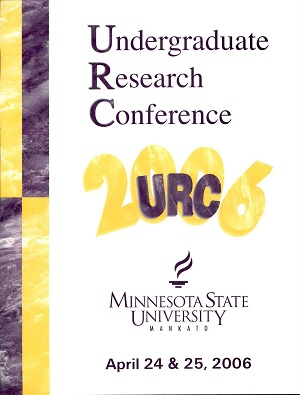Japan and the U.S.: Two Free Nations, Two Versions of Free Press
Location
CSU 284
Start Date
24-4-2006 10:30 AM
End Date
24-4-2006 12:30 PM
Student's Major
Communication Studies
Student's College
Arts and Humanities
Mentor's Name
Eiji Kawabata
Mentor's Department
Government
Mentor's College
Social and Behavioral Sciences
Description
The media are important in a democracy; they provide a means of communication between the government and its constituents. They also serve as a fourth branch to check the country's government. Although these two nations have different histories there are many similarities in the media systems. This presentation examines the media and politics in two separate democratic nations, Japan and the United States. Despite their different historical and cultural backgrounds, they have similarities. Both nations have free press, but there are cases when both governmental systems have attempted to censure their media in one form or another. This presentation delves into the differences as well, for instance the Japanese system is more exclusive than the Untied States'. While analyzing the similar and diverse aspects of the media systems the presentation touches on the benefits and the disadvantages of both systems. Through these analyses, the presentation illuminates the fundamental relationship between the media and democracy.
Japan and the U.S.: Two Free Nations, Two Versions of Free Press
CSU 284
The media are important in a democracy; they provide a means of communication between the government and its constituents. They also serve as a fourth branch to check the country's government. Although these two nations have different histories there are many similarities in the media systems. This presentation examines the media and politics in two separate democratic nations, Japan and the United States. Despite their different historical and cultural backgrounds, they have similarities. Both nations have free press, but there are cases when both governmental systems have attempted to censure their media in one form or another. This presentation delves into the differences as well, for instance the Japanese system is more exclusive than the Untied States'. While analyzing the similar and diverse aspects of the media systems the presentation touches on the benefits and the disadvantages of both systems. Through these analyses, the presentation illuminates the fundamental relationship between the media and democracy.
Recommended Citation
Koch, Eliza. "Japan and the U.S.: Two Free Nations, Two Versions of Free Press." Undergraduate Research Symposium, Mankato, MN, April 24, 2006.
https://cornerstone.lib.mnsu.edu/urs/2006/oral-session-C/2




